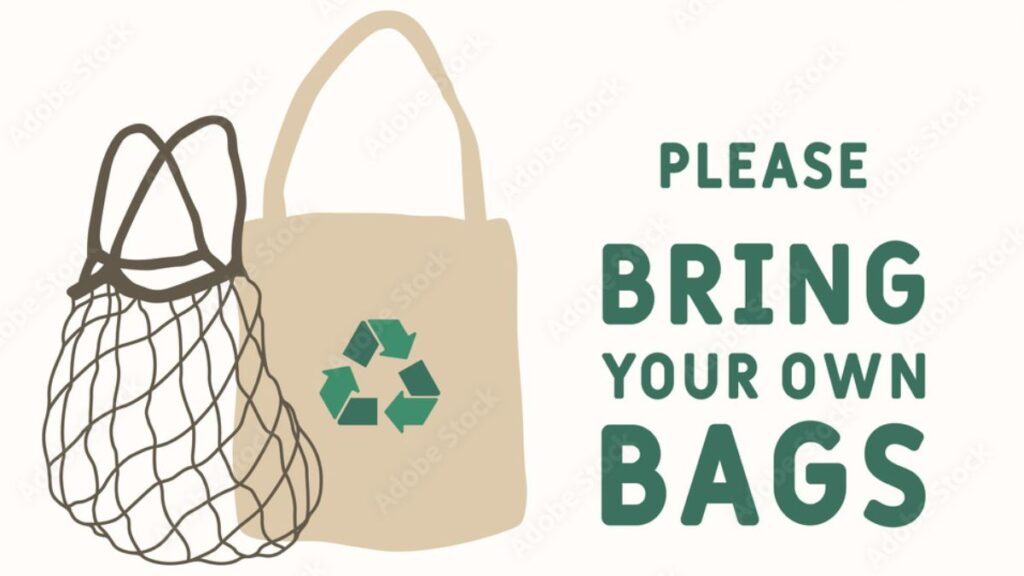In our fast-paced modern world, convenience often takes precedence over sustainability. We’ve become accustomed to grabbing items off store shelves, unaware of the environmental footprint left behind by our purchasing habits. But what if I told you that making a simple change, like bringing your own reusable bags and containers when shopping for groceries, could make a significant difference? In this blog, we’ll explore how this small step can lead to healthier eating habits and contribute to a greener planet.
The Impact of Single-Use Packaging: Before we delve into the benefits of reusable bags and containers, let’s first understand the problem with single-use packaging. Walk into any grocery store, and you’ll be greeted by rows upon rows of products encased in plastic, cardboard, and other disposable materials. These packaging materials not only contribute to the ever-growing problem of plastic pollution but also pose potential health risks.
Plastic, in particular, is a major concern. It’s estimated that over 8 million tons of plastic end up in our oceans every year, wreaking havoc on marine life and ecosystems. Furthermore, many plastics contain harmful chemicals that can leach into our food and water, posing risks to human health.
The Solution: Reusable Bags and Containers Fortunately, there’s a simple solution within reach: bringing your own reusable bags and containers when shopping for groceries. By opting for reusable alternatives, you can significantly reduce your reliance on single-use packaging and minimize your environmental impact.
Here are some compelling reasons to make the switch:
- Environmental Benefits: By using reusable bags and containers, you’re reducing the demand for single-use plastics and other disposable materials. This helps to conserve natural resources, reduce pollution, and mitigate the harmful effects of plastic on our planet’s ecosystems.
- Healthier Choices: Reusable bags and containers are typically made from safer materials, such as cloth or stainless steel, which are less likely to leach harmful chemicals into your food. By avoiding plastic packaging, you’re also reducing your exposure to potentially harmful substances.
- Cost Savings: While there may be an initial investment in purchasing reusable bags and containers, they can ultimately save you money in the long run. Many grocery stores offer discounts or incentives for customers who bring their own bags, and you’ll no longer need to purchase disposable plastic bags or containers.
- Convenience: Reusable bags and containers are durable, versatile, and easy to clean, making them convenient to use for shopping, meal prep, and storage. With a little planning and organization, you can seamlessly incorporate them into your daily routine.
Tips for Making the Transition: Transitioning to reusable bags and containers may seem daunting at first, but with a few simple tips, you’ll soon be on your way to making a positive impact:
- Invest in high-quality reusable bags and containers that suit your needs and preferences.
- Keep a stash of reusable bags in your car or purse, so you always have them on hand when shopping.
- Choose products with minimal packaging or opt for bulk items that can be stored in your own containers.
- Get creative with meal prep and storage by using reusable containers for leftovers, snacks, and lunches on the go.
Bringing your own reusable bags and containers may seem like a small step, but its impact extends far beyond your individual actions. By making this simple change, you’re not only promoting healthier eating habits but also contributing to the preservation of our planet for future generations. So the next time you head to the grocery store, remember to BYOB – Bring Your Own Bags – and join the movement towards a more sustainable future.

